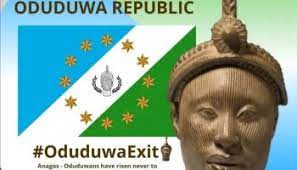Petroleum Subsidy: FGN-Labour Deal Impossible This Time

The Group Managing Director of the Nigerian National Petroleum Corporation (NNPC), Mele Kyari has revealed that the NNPC incurred N2.13 trillion between 2016 and 2019 as subsidy on foreign exchange for fuel marketers. The NNPC’s Group General Manager, Public Affairs Division, Kennie Obateru made this known in a statement during the weekend. According to the statement, Mr. Kyari was addressing businesses involved in the downstream sector of the oil industry i.e. importation and marketing of petroleum. He also promised the audience that NNPC is working on strategies to boost forex accessibility for marketers to allow the NNPC cease being the sole importer of refined petroleum known in the technical jargon as premium motor spirit.
Unlike his predecessors, Mr. Kyari consistently has made statements highlighting the unsustainable cost of Nigeria’s fuel subsidy regime, more than hinting that there is no going back on the eradication of the fuel subsidy. The Nigerian Government, represented by the Dr. Chris Ngige, Minister of Labour and Mr. Femi Gbajabiamila, Speaker of the House of Representatives, have been negotiating with the Nigeria Labour Congress (NLC) to avert a national strike planned to commence Monday, September 28 over the removal of the fuel subsidy. The NLC is also opposed to the FGN’s decision to allow the transition to an electricity market in which Nigerians pay the full cost of generating power which has led to an increase in tariffs for some classes of consumers. Mr. Kyari’s consistent stance on the enormous cost and unsustainability of the fuel subsidy suggests that this time the FGN may not give up on removing it under pressure from the NLC. In 2012, former President Goodluck Jonathan had to settle for an increase in the price of fuel from N86.5 to N145 when the NLC and opposition parties rose against his move eradicate the subsidy.
Nigeria, Africa’s biggest economy, committed an outlay in the region of $5.16 billion or 20% of its budget to subsidise the consumption of fuel 2012. Fuel subsidy is a significant contributor to the FGN’s budget imbalance and the country’s position as the “world’s poverty capital” as it sucks expenditure from more productive investment in infrastructure and education and healthcare into the corruption-prone fuel subsidy. Subsidised Nigerian petroleum had continued to be smuggled into neighbouring countries where the product is sold at market prices under the populist President Mohammadu Buhari who insisted after he was elected in 2015 that there was nothing like fuel subsidy.
| IN CONTEXT
Mr. Mele Kyari also noted in the statement that the Central Bank of Nigeria had taken the first step to harmonise the country’s different foreign exchange rates into one i.e. consolidating the multiple rates around the over-the-counter spot market used by investors and exporters. But a significant gap still exists between the rate in the so-called NAFEX, the market where investors and importers buy and sell foreign exchange and in which the CBN intervenes to prevent a slide in the value of the naira and the so-called black market. The Central Bank of Nigeria lately has shown a preference to muffle demand for foreign exchange, hence artificially boosting the value of the naira, rather than allow the national currency to find its true value i.e. a rate at which the CBN can meet the demand for foreign exchange from Nigerian companies and individuals given the low price of crude oil which provides about 90% of Nigeria’s foreign exchange. Nigeria’s foreign exchange reserves has remained stuck at $35 billion; projected revenue from oil exports has declined by 50% in the first half of 2020 and OPEC quota has limited Nigerian crude oil exports to 1.4 million barrels per day. A decisive devaluation will result in a more stable exchange rate at which economic actors can invest and trade with more confidence because of much higher certainty that the CBN’s reserves and inflow from oil sales will meet the demand for foreign exchange. Also Read: Nigeria Looking The Way Of Gas To Buffer Subsidy Removal Pain The NNPC may not be able to hands off importing petroleum, leaving the activity to members of the Major Oil Marketers Association of Nigeria (MOMAN) the NNPC chief addressed at the NNPC Towers in Abuja until the CBN decides to allow free trade in foreign currency. If the gap between the CBN NAFEX rate and the black market rate continues to exist, allocating dollars to petroleum importers comes with the risk of massive “round tripping” i.e. selling the foreign exchange for much higher at the black market. Freeing the exchange rate would mean that everyone, including petroleum marketers, buys at the same, even if higher rate.
|
The Nigerian Labour Congress as usual is neither concerned that the fuel subsidy benefits better-off Nigerians more than it benefits the poor nor is it dissuaded by the fact that no Nigerian government has been able to block the opportunity for massive fraud it creates.
According to the World Bank “Rural households in Nigeria, which constituted 53.6 per cent of the total Nigerian population in 2006 (World Bank, 2013), consumed only 33 per cent of total household consumption of petroleum products in Nigeria compared to 67 consumed by the wealthier urban households.”







